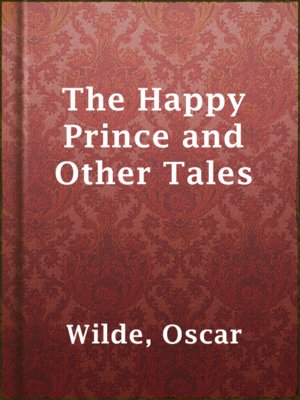
In the title story, the statue of a prince who had been sheltered in luxury while he lived, could now view from his pedestal the poverty and suffering in his city, and so he convinced a swallow to carry each of the statue’s jewels to someone in need. Wilde’s stories, in the tradition of literary fairy tales such as those of Hans Christian Andersen, depict poverty, suffering, cruelty and arrogance, with sacrifice or martyrdom occurring more than once. The stories have also been adapted for stage performances including, as I discovered recently, a ballet which will be performed in Grand Rapids, Michigan in 2018.

Oscar Wilde’s book for children, The Happy Prince and Other Tales, published in 1888, has attracted many artists and printers over the years. This process is experimental and the keywords may be updated as the learning algorithm improves.By Aedín Ní Bhróithe Clements, Irish Studies Librarian These keywords were added by machine and not by the authors. 3 Never did any man seem to write more deliberately for the smallest possible audience or in a style more artificial, and that audience contained nobody it seemed but a few women of fashion who invited guests to listen to his conversation and two or three young painters who continued the tradition of Rossetti. I remember the reviews were generally very hostile to his work, for Wilde’s aesthetic movement was a recent event and London journalists were still in a rage with his knee breeches, his pose - and it may be with his bitter speeches about themselves while men of letters saw nothing in his prose but imitations of Walter Pater or in his verse but imitations of Swinburne and Rossetti.


My mind went back to the late eighties when I was but just arrived in London with the manuscript of my first book of poems, 2 and when nothing of Wilde’s had been published except his poems and ‘The Happy Prince’. I had already heard that ‘The Soul of Man under Socialism’ was much read in the Young China party 1 and for long after I found myself meditating upon the strange destiny of certain books.

When I was lecturing in Boston a little before the War an Arab refugee told me that Oscar Wilde’s works had been translated into Arabian and that his Happy Prince and Other Tales had been the most popular: ‘They are our own literature,’ he said.


 0 kommentar(er)
0 kommentar(er)
